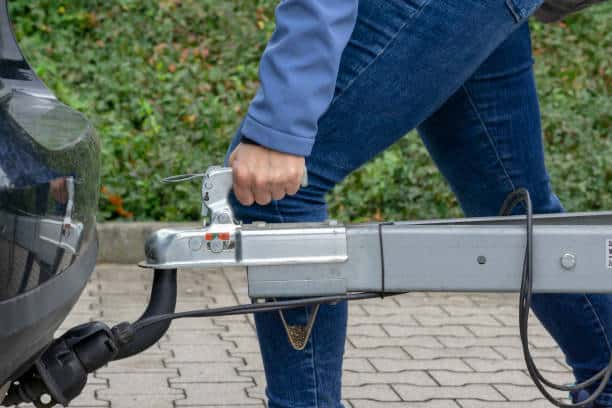Trailers can offer us the ability to carry larger loads than we would otherwise be able to in a passenger car, but they are not without their own set of rules.
Before we get into the details however, we need to know that trailers are categorised in two groups, which we will explain shortly, but when we are referring to larger trailers, we must also include caravans.
The two types of trailers are determined according to their Maximum Authorised Mass (MMA). On the one hand, there are light trailers (MMA less than or equal to 750 kg) and, on the other hand, the non-light ones (MMA greater than 750 kg), which we are referring to as larger trailers, and which will include not only those designed for carrying goods, but also caravans and catering vans, as an example.
In the case of towing a trailer with less than 750 kg of MMA, things are a lot simpler. Of course, we need a towbar fitted to the vehicle and this must be an approved type, but other than that, we do not have to worry about any paperwork, so long as our driving licence is valid for category B vehicles.
On the other hand, if the trailer has an MMA greater than 750 kg, which is what we want to explain in more detail in this article, there are certain procedures to need to be carried out.
According to the General Directorate of Traffic (DGT), if you do not have the category B+E permit on your driving licence, it is necessary to obtain a B96 permit, which we will cover in more detail below. This is not a licence, it is an authorisation that must be requested in order to be allowed to carry trailers of this weight, provided that the set of the trailer and towing vehicle combined does not exceed 4,250 kg. In the event that it exceeds this weight, the regulations request the B+E permit.
In the same way, the trailer must be registered and display a unique identifying red number plate on the back, as well as the number plate of the vehicle that is towing it. Also, if our trailer is categorised as ‘not light’, it is necessary to have double insurance and ITV. Although we already have compulsory insurance for the car that tows it, it is also mandatory to have specific insurance for the trailer as well. You must also carry the documents with you.
It is important to have all these papers in order, as not complying would result in t a fine. In fact, the penalty that the DGT can impose for driving without insurance ranges from 600 to 3,000 euro, which can vary depending on the circumstances or the type of vehicle.
Irrespective of the size of trailer, the vehicle must also be suitable for being able to tow it.
Another seemingly minor point that is often overlooked by drivers towing a trailer it that it is also mandatory to carry a fire extinguisher. This rule applies irrespective of the size or type of trailer we are towing.
WHAT IS THE B96 PERMIT?
Driving with a trailer requires paying special attention to how we drive. The weight and the additional load greatly influence the behaviour of the vehicle and some manoeuvres, such as reversing, are more complicated if we have a trailer or caravan.
This is why it is necessary to have a special permit, such as the B96. As we have mentioned, the MMA (Maximum Authorised Mass) determines the type of driving licence or authorisation that we need to legally transport a trailer.
As we have mentioned, if you have a B+E category driving licence, you do not need the B96.
The requirements for the B96 are to be at least 18 years old, have obtained a B driving licence and pass some practical driving tests. These practical driving tests consist of driving with a trailer while performing certain manoeuvres.
Since the B96 authorisation is a complement to the class B driving licence, it is not necessary to take a theory test, the B license is sufficient in this regard. Simply, some practical tests that guarantee our ability to drive with a trailer will be enough.
There are two parts to the test, in the first part will check your standard driving skills, as well as knowledge of traffic law and signs, whilst you are towing the trailer in a real situation. The second part of the test is to check on your ability to carry out certain manoeuvres. This part is conducted on a closed circuit.
It is not strictly necessary to go to the driving school to obtain training for the B96, but it is advisable to do so. The reason is that it is very good to gain ease driving with the trailer hooked up and then be able to pass the practical tests without problems.
The bad news is that the whole process can be costly, as the price, including training and test fees, as well as administration, works out on average of between 450 and 600 euro.
Remember also that the B96 is complementary to the B licence and that it allows us to drive with a trailer if it exceeds 750 kg of MMA. But, if the MMA of the set of vehicles you are going to drive exceeds 4,250 kg, you will need the B+E licence, which allows us to carry up to a set of vehicles of up to 7,000 kg. To obtain this licence, it is necessary to pass a theoretical exam and two practical exams.





